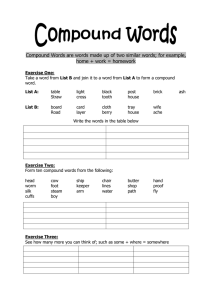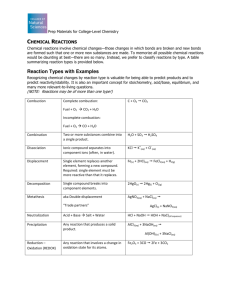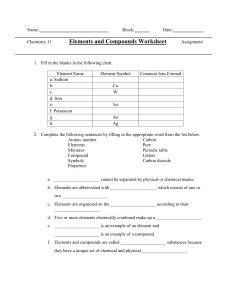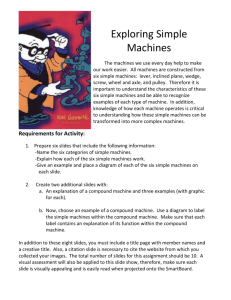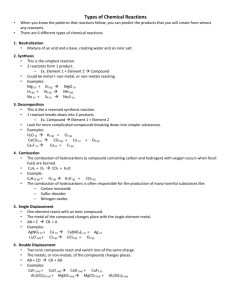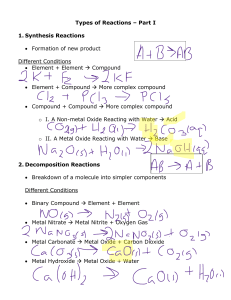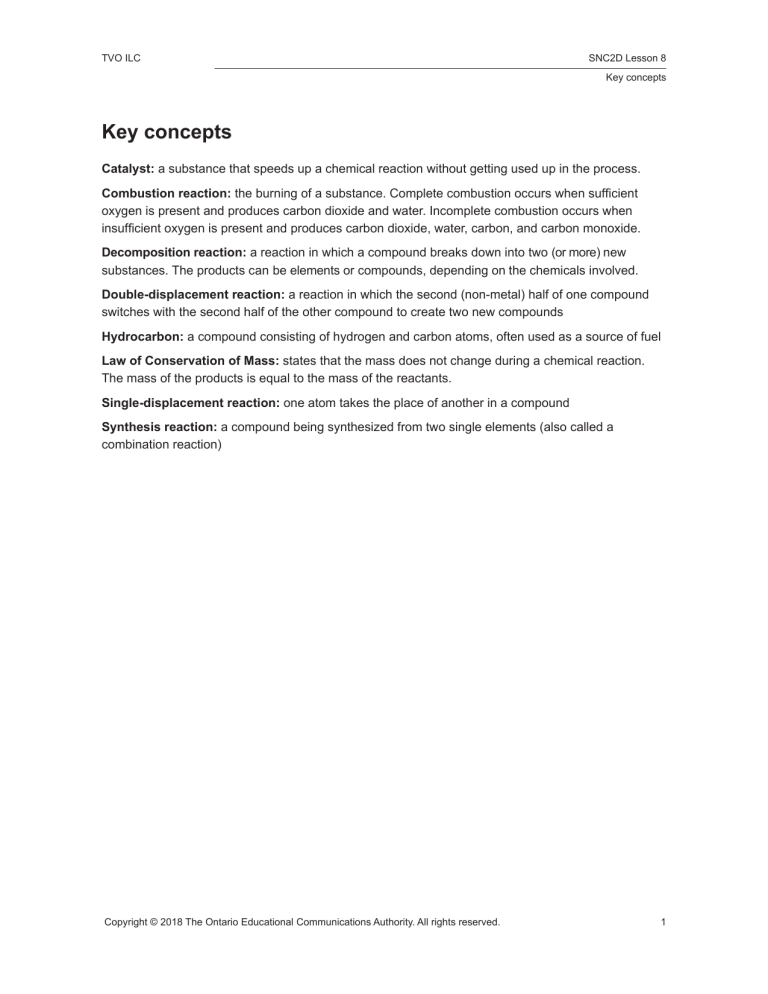
TVO ILC SNC2D Lesson 8 Key concepts Key concepts Catalyst: a substance that speeds up a chemical reaction without getting used up in the process. Combustion reaction: the burning of a substance. Complete combustion occurs when sufficient oxygen is present and produces carbon dioxide and water. Incomplete combustion occurs when insufficient oxygen is present and produces carbon dioxide, water, carbon, and carbon monoxide. Decomposition reaction: a reaction in which a compound breaks down into two (or more) new substances. The products can be elements or compounds, depending on the chemicals involved. Double-displacement reaction: a reaction in which the second (non-metal) half of one compound switches with the second half of the other compound to create two new compounds Hydrocarbon: a compound consisting of hydrogen and carbon atoms, often used as a source of fuel Law of Conservation of Mass: states that the mass does not change during a chemical reaction. The mass of the products is equal to the mass of the reactants. Single-displacement reaction: one atom takes the place of another in a compound Synthesis reaction: a compound being synthesized from two single elements (also called a combination reaction) Copyright © 2018 The Ontario Educational Communications Authority. All rights reserved. 1

